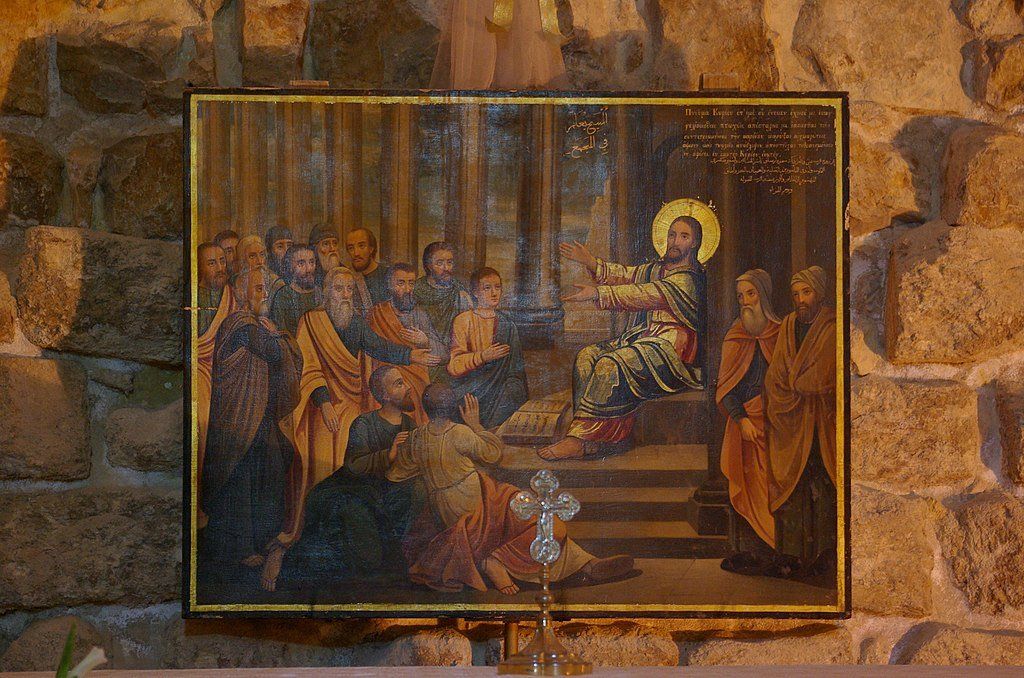Message of Abbot Paul - Monday 30th August
Message from Fr Paul for Monday, 30th August
I’m told that today is a Bank Holiday. I’m not quite sure what the significance of that is. Can anyone tell me? I can remember that when I was a in the 5th and 6th forms at the local grammar school, I’d get a job in a local factory for what was known as “Stop Fortnight,” and hard work it was too and the noise excruciating. The factory workers took their holiday at the same time each year, while a skeleton crew was left behind, supplemented by the likes of me and my schoolfriends. I can’t say it was fun, but the money was good and we got to experience what real work was like. Health and safety didn’t seem to exist in those days and the canteen food was inedible, but I loved being with those hardworking Welsh men and women and learnt so much from them. The chosen few were then picked to carry on for another fortnight, while those who had remained behind for the “Fortnight” were allowed to go off on their holiday. Happy, innocent days, when we were grateful for an extra bit of pocket money honestly earned. As for the Bank Holiday, I always thought it was kept on the first Monday in August and not the last, but such things make no difference to our lives. In a monastery, you just carry on, no matter what.
Today we begin our daily weekday reading of Luke, (Lk 4: 16-30). You might well ask why we begin in the middle of chapter 4, but it’s the central section of the Gospel we read, omitting the Infancy and Passion Narratives, just as we did with Matthew. Mark doesn’t have an account of the conception and birth of Jesus, so we began at the beginning. Jesus comes back to Nazareth, where he was brought up and where his family still lives. As was his custom, he went to the synagogue on the sabbath day. “He stood up to read and they handed him the scroll of the prophet Isaiah. Unrolling the scroll, he found the place where it is written:
The spirit of the Lord has been given to me,
for he has anointed me.
He has sent me to bring the good news to the poor,
to proclaim liberty to captives
and to the blind new sight,
to set the downtrodden free,
to proclaim the Lord’s year of favour.
He then rolled up the scroll, gave it back to the assistant and sat down. And all eyes in the synagogue were fixed on him.“ In the scroll of Isaiah, Jesus comes across Chapter 61, v. 1-2 and reads what the prophet has to say about the Messiah who is to come. Just as the text is in the present tense, speaking of the here and now, Jesus goes on to say to his townsmen, “’This text is being fulfilled today even as you listen.’ And he won the approval of all, and they were astonished by the gracious words that came from his lips. They said, ‘This is Joseph’s son, surely?’” Jesus is proclaiming himself to be the Messiah, so long-awaited. The congregation approves and is astonished, but they know him to be the son of Joseph, so how can he be the Messiah? They are curious to know more and to see more and have heard of the great things he has done at Capernaum. Why there, they wonder, why not here? Jesus senses an attitude of rejection. He says, “I tell you solemnly, no prophet is ever accepted in his own country.” He reminds them of two examples from the Scriptures. “There were many widows in Israel, I can assure you, in Elijah’s day, when heaven remained shut for three years and six months and a great famine raged throughout the land, but Elijah was not sent to any one of these: he was sent to a widow at Zarephath, a Sidonian town. And in the prophet Elisha’s time there were many lepers in Israel, but none of these was cured, except the Syrian, Naaman.” Confronted with this truth, his fellow townsmen are enraged and react with violence. Is it any wonder he rarely went back? “They sprang to their feet and hustled him out of the town; and they took him up to the brow of the hill their town was built on, intending to throw him down the cliff, but he slipped through the crowd and walked away.” A day that begins with such joy and hope ends with opposition and hatred. The incident is prophetic, for it prepares us and his disciples for what will come later, his arrest, trial, condemnation, crucifixion and death. Jesus enters into the tragedy and suffering our world, so that those who are suffering today, no matter where they are or who they are or for whatever reason, will know that God is with them in their suffering and that suffering is not in vain. For God and for ourselves it has a redemptive purpose and for that we give thanks to our loving, heavenly Father.










